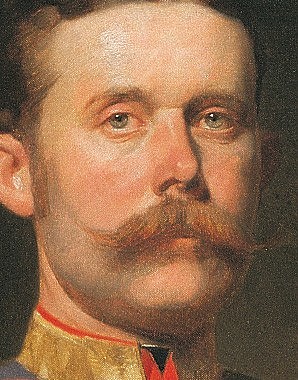 |
| Archduke Franz Ferdinand of Austria-Hungary assassinated in Bosnia by Serb nationalists 28th June 1914 |
The 28th June 2014 marked a hundred years since the event that 'sparked' the First World War-a devastating and World changing event that decimated entire countries and, some would argue, an entire generation (the 'lost generation'). The event in question is of course the assassination of the Archduke Franz Ferdinand who, at the time, was the heir to the Austro-Hungarian Empire. Franz was targeted by Bosnian Serb nationalists as a way of showing their frustration with their Austrian rulers. The Bosnian Serbs no longer wanted to be part of the Austro-Hungarian empire-they yearned for their freedom and had the desire to create a 'greater Serbia' with Austria-Hungary's neighbour Serbia.
Today (3rd July) marks a hundred years since Franz Ferdinand and his wife Sophie were laid to rest in a private ceremony in Austria. The official ceremony that took place in Sarajevo (where the archduke was shot) on the 28th June to mark 100 years since the assassination was marred with controversy with the notable absence of many Serb and Bosnian officials. It would seem that even a hundred years on there are still debates to be had over who or what was to blame for the outbreak of war in 1914. And rightly so in my opinion-historians have been debating this very thing for decades and historiography proves that opinions have changed over the years. The question of who or what was to blame for the events that followed the 'July Crisis' (the term given to the period from when Franz was shot to the first declaration of war by Austria) go way beyond the event of the 28th June 1914-they include, but are not limited to; the naval race between Britain and Germany, the Moroccan Crises, imperialism, the war plans of various European nations, the complicated alliance system, German aggression and the infamous 'blank cheque', the personality of Kaiser Wilhelm II, and nationalism. The debate of who exactly was to blame for war in 1914 will rage on further, especially in light of the centenary this August (when Britain entered the war) and has already been on the lips of many British politicians with the left being accused of shying away from the blame game. You may not think it particularly matters who or what was to blame for the war-but there is no doubt that it is a topic that will recur over the next four years as the world contemplates a hundred years since the event in question.
Please let me know your thoughts on the subject.











